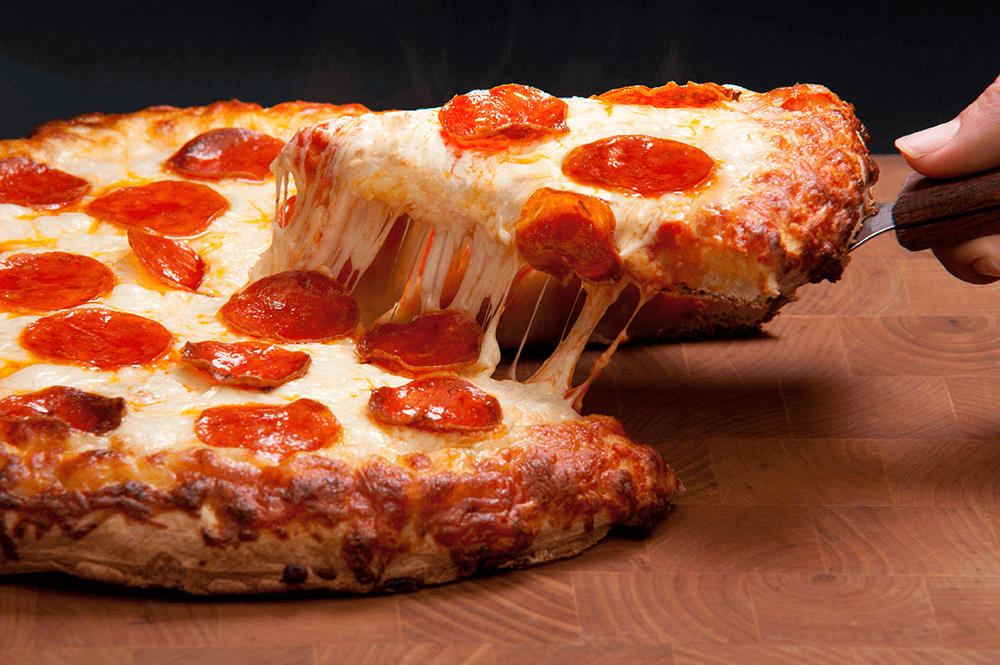Dominos: Data-driven decision making at the world’s largest pizza delivery chain
23 July 2021
With over 10,000 outlets serving up millions of pizzas each year, Dominos is the largest pizza delivery chain in the world.
How Dominos uses Big Data in practice
The company has consistently pushed its brand onto new and developing tech, and it’s now possible to order pizzas on Twitter, smart watches and TVs, in-car entertainment systems such as Ford’s Synch, and social media platforms like Facebook. This drive to keep a Dominos order button at customers’ fingertips at all times is referred to as Dominos AnyWare.

Of course, this multi-channel approach to interfacing with customers gives the potential to generate and capture a lot of data. I spoke to Dan Djuric, Dominos’ vice president of enterprise information services, about how the business uses this data to derive insights on customers and improve marketing efforts. “Dominos AnyWare literally translates to data everywhere,” Djuric tells me. “Ultimately we start to build this unified customer view, measuring consistent information across our operational and analytic layers.”
“We have the ability to not only look at a consumer as an individual and assess their buying patterns, but also look at the multiple consumers residing within a household, understand who is the dominant buyer, who reacts to our coupons, and, foremost, understand how they react to the channel that they’re coming to us on,” says Djuric.
This means that individual customers, or households, can be presented with totally different presentation layers than others – different coupons and product offers – based on statistical modelling of customers fitting their profile.
Dominos’ investment in driving orders across their digital platforms has certainly borne results – the group now processes between 55 and 58 percent of its orders via online systems, with the remainder accounted for by traditional ordering methods such as telephone or in-person.
“We’re becoming more of a digital e-commerce operation, rather than a traditional quick-service restaurant business,” Djuric tells me. “We’re leading the way, I think, in what we’re doing with social and what we’re doing with our digital platforms. And importantly, I think, it’s structuring the digital service with the insights we have on customers and practices, that’s leading our customers to a better, faster and more quality-based experience on our digital platforms. It has surprised us, how quickly we’ve transitioned from a traditional ordering mechanism into an e-commerce-based profile.”
Dominos’ data warehouse manager, Cliff Miller, was also keen to talk about how influential analytics and Big Data has been in that transition. According to Miller, “We’ve definitely moved away from a time when we were just processing data on sales and operational metrics in our warehouse. Every business unit under our umbrella is looking to leverage data to make them faster and more cost effective.”
The technical details
Dominos relies on Talend’s Big Data integration platform for much of the heavy back-end work across its Hadoop cluster, which is based on a Hortonworks distribution, and for pulling together and wrangling data from a broad variety of sources.
Data captured through all its channels – text message, Twitter, Pebble, Android, Amazon Echo, to name just a fraction – is fed into the Dominos Information Management Framework. There it’s combined with enrichment data from a large number of third-party sources, such as the United States Postal Service, as well as geocode information, demographic data and competitor data, to allow in-depth customer segmentation. In all, information from 85,000 data sources, both structured and unstructured, pours into the system every day.
Ideas and insights you can steal
From pioneering new ordering channels to investing in advanced customer analytics, Dominos has consistently moved to keep up with the latest trends in technology – and it’s clear the company will continue to prioritise data and analytics. As Miller neatly puts it, “We believe being a data-driven company gives us a lot of competitive advantages.”
Key to Dominos’ success with data is their choice of an appropriate data and analytics platform. “We’re an aggressively aspirational company and store growth is very important. We need to make sure we are on platforms which can scale,” says Miller. Companies looking to emulate Dominos’ pioneering spirit should therefore choose platforms that are flexible and can scale up to meet future demands.
Related Articles
Technology in Action: My Key Takeaways on How AI and Quantum Are Accelerating Global Transformation
By now, “smart” versions exist of just about every home appliance, gadget and gizmos we can think of. However, manufacturers continue[...]
8 AI Ethics Trends That Will Redefine Trust And Accountability In 2026
By now, “smart” versions exist of just about every home appliance, gadget and gizmos we can think of. However, manufacturers continue[...]
Sign up to Stay in Touch!
Bernard Marr is a world-renowned futurist, influencer and thought leader in the fields of business and technology, with a passion for using technology for the good of humanity.
He is a best-selling author of over 20 books, writes a regular column for Forbes and advises and coaches many of the world’s best-known organisations.
He has a combined following of 4 million people across his social media channels and newsletters and was ranked by LinkedIn as one of the top 5 business influencers in the world.
Bernard’s latest book is ‘Generative AI in Practice’.






Social Media